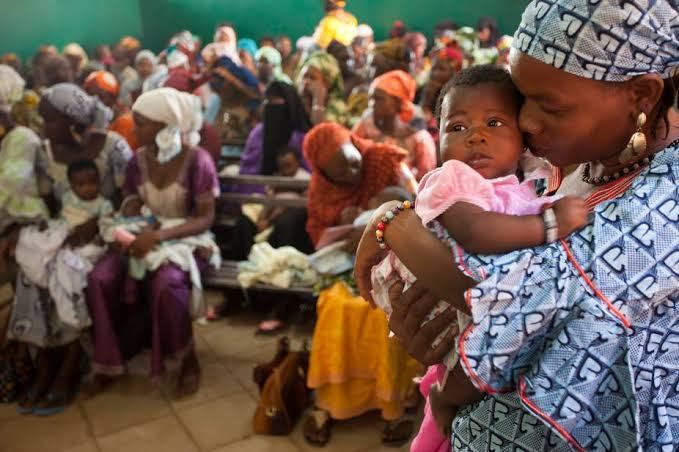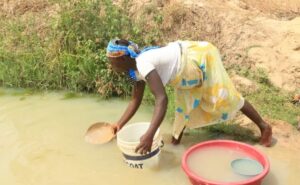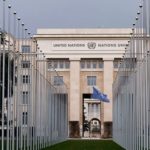
The United States Agency for International Development (USAID) has alerted the Federal Government about some of the problems affecting the country’s health sector. USAID’s concern came just as Vice President Yemi Osinbajo assured that the Federal Government was committed to the improvement of the health care delivery system in the country.
Speaking at the inauguration of the National Institute for Pharmaceutical Research and Development (NIPRD) “Health Engagement, Education, Access Discourse” in Abuja on Monday, the representative of USAID Country Director, Mupa Asuga, said that research and local development of drugs in the country was at a low ebb.
“Despite the impressive growth the country is recording in the health sector, the challenges are still there, inadequate infrastructure, poorly implemented polices and other problems,” he said.
As part of the way forward, he suggested more in terms of ministerial synergy to ensure the development and implementation of crosscutting policy interventions in the health sector.
On low performance of firms in the local pharmaceutical industry, Esuga said, “Yes we have the Procurement Act but to what extent is that being implemented? Is there any policy that has preference to say, let’s buy products from local companies even if the prices are higher, for a period of time so that the industry can grow.”
He lamented that the country was presently at the mercy of China and India.
He said that the country’s healthcare sector was facing serious challenges, noting medicine security is a national security issue and should be seen as such.
According to Esuga, the efforts of NIPRD is required to spearhead the conduct of research in “our areas of need and to be able to use it to solve problems.”
He said that most research work done by members of the academia were not benefiting the industry because most often they were not targeted to identified needs.
He also said that most of the pharmaceutical industries in the country were operating at a very low level, with as low as 30% installed capacity.
He said that the low capacity utilization in these drug manufacturing firms also comes with the challenge of having to foot the utility bills like paying for power supply and diesel.
“For those machines, if you don’t use them to full capacity, you will paying for their maintenance costs.”
He gave example of what the government of Luanda was doing to encourage its pharmaceutical outfits, saying, “they will just give them targets, we want you to start producing this product now for a period of five years”.
He also said that the reason drugs produced in the country don’t find favourable market abroad was because they do not meet international quality standards.
On the positive side, the USAID official said there were over 160 manufacturing outfits in the pharmaceutical sector, adding that the country commands over 60 precent of the drug manufacturing capacity of the West African region.
Osinbajo said the nation’s health policy cannot achieve its desired target without the availability of good quality and affordable medicine.
The Vice President who was represented by the Permanent Secretary in the Ministry, Abdulaziz Mashi Abdullahi, said the overall goal of the federal government’s drug policy was to make sure that quality drugs were easily available to Nigerians.
He also that the intention was to ensure increased local production of drugs that were essential to health needs.
Osinbajo listed some of the notable achievements made by the government under its drug administration policy to include, the publication of the national essential drug list, national drug programme, standard treatment guidelines, and repositioning of the Pharmaceutical Council of Nigeria.
“The national drug policy is currently undergoing review to meet up with new challenges in the health sector,” he said.
The Permanent Secretary also said that federal government was promoting research and local development of drugs and other health facilities to further improve on the well-being of Nigerians.
The Director General of NIPRD, Dr. Obi Peter Adigwe, said the institute was currently working with some Nigerian pharmaceutical companies to develop research findings and to tailor its outcome to the health needs of our people.
You may be interested

PSG To Reignite Interest In Osimhen
Webby - December 21, 2024Paris Saint-Germain have contacted Napoli to discuss signing Victor Osimhen in January, according to reports in France.It is reported that…

Arteta Provides Injury Updates On Five Arsenal Players Ahead Palace Clash
Webby - December 20, 2024Arsenal manager Mikel Arteta has revealed that Declan Rice and Riccardo Calafiori are both available to be in the Gunners…

Carabao Cup: Spurs Edge Man United In Seven-Goal Thriller To Reach Semi-finals
Webby - December 19, 2024Tottenham Hotspur edged Manchester United 4-3 in the quarter-finals of the Carabao Cup on Thursday.Spurs raced to a 3-0 lead…




















![American Pastor, David Wilson Seen Eating The Box Of Woman Who Isn’t His Wife [Video]](https://onlinenigeria.com/wp-content/uploads/2019/10/american-pastor-david-wilson-seen-eating-the-box-of-woman-who-isnt-his-wife-video-150x150.jpg)








